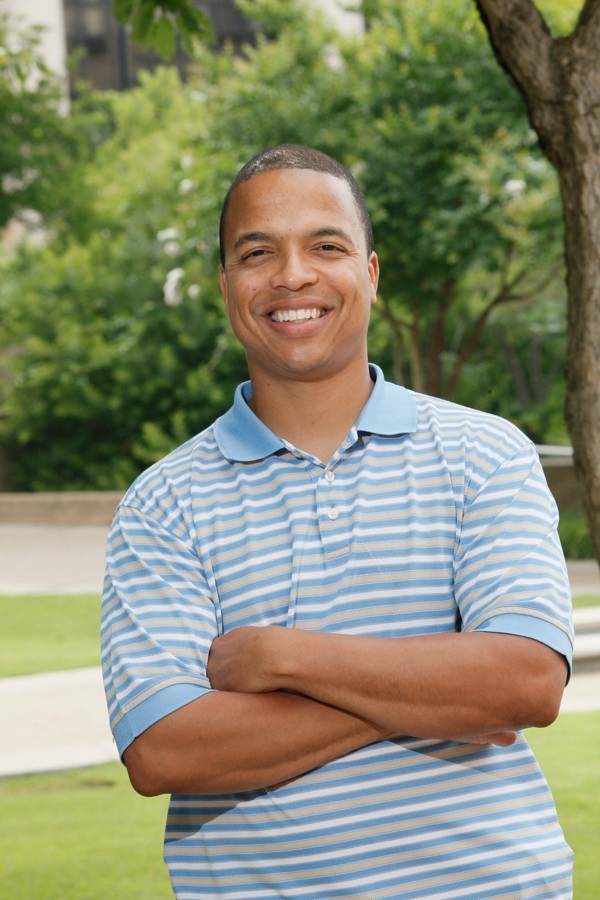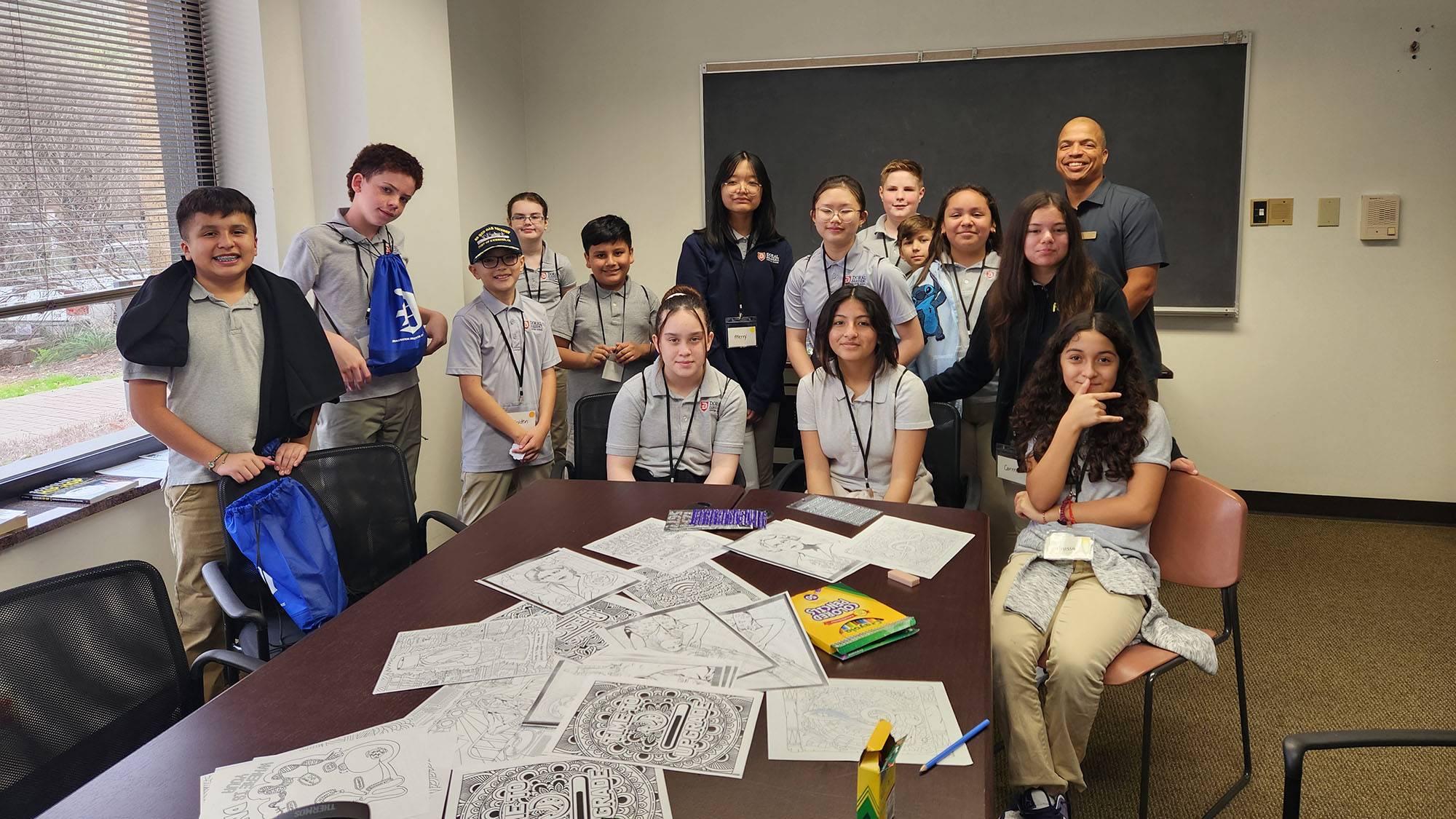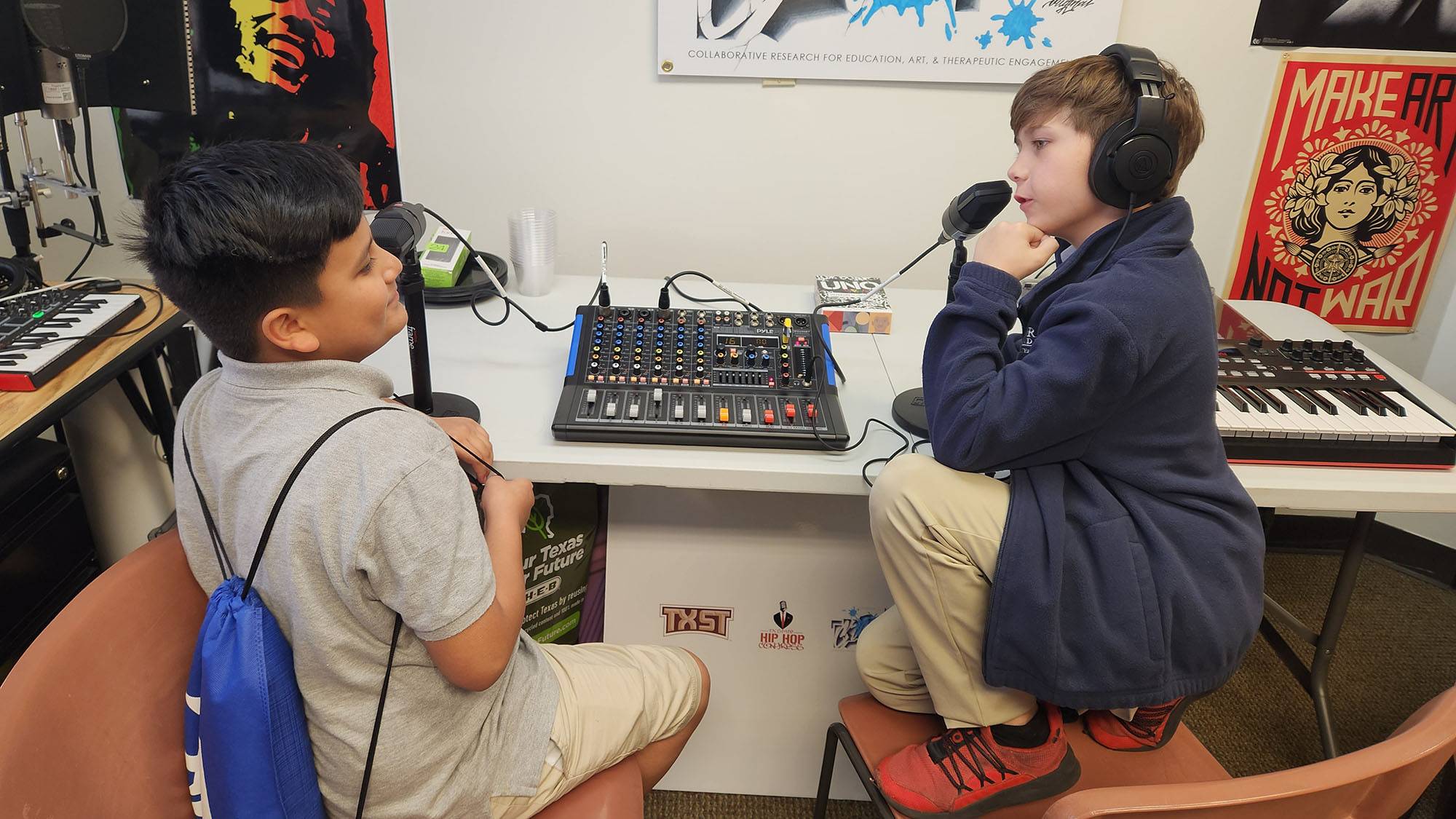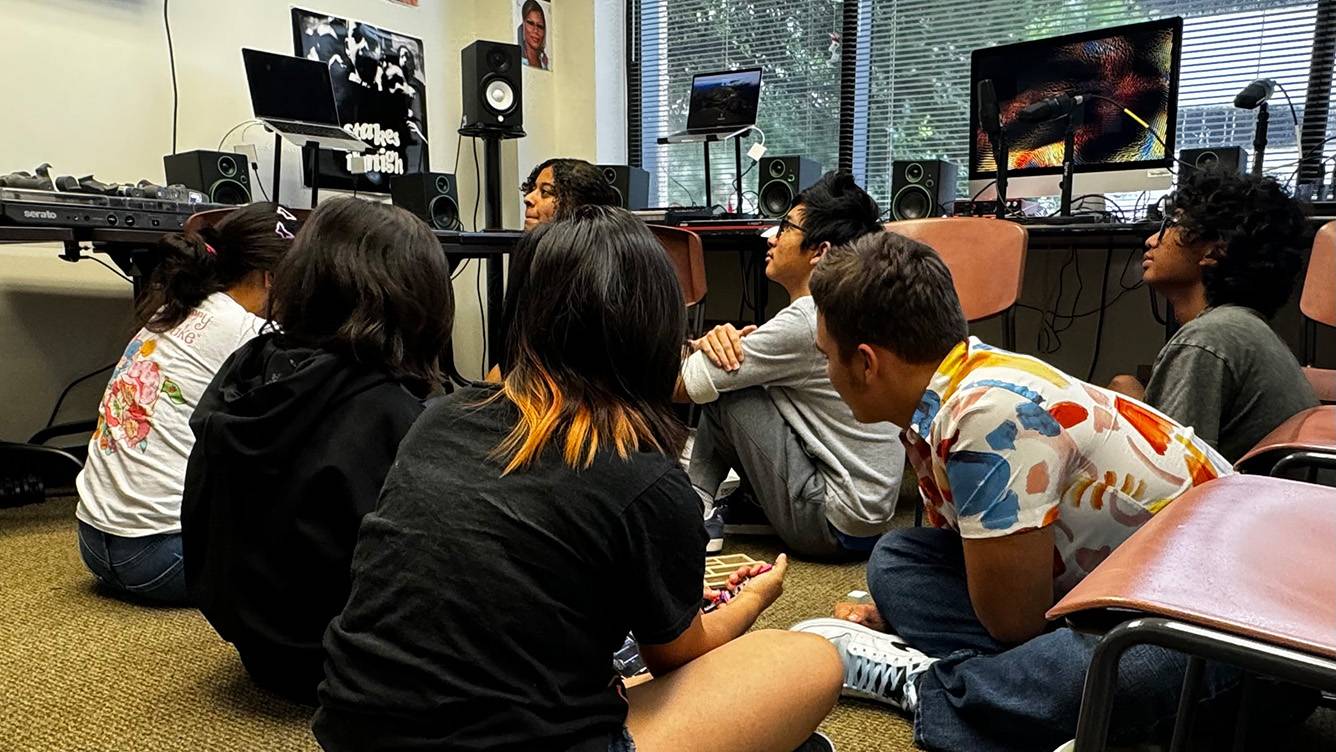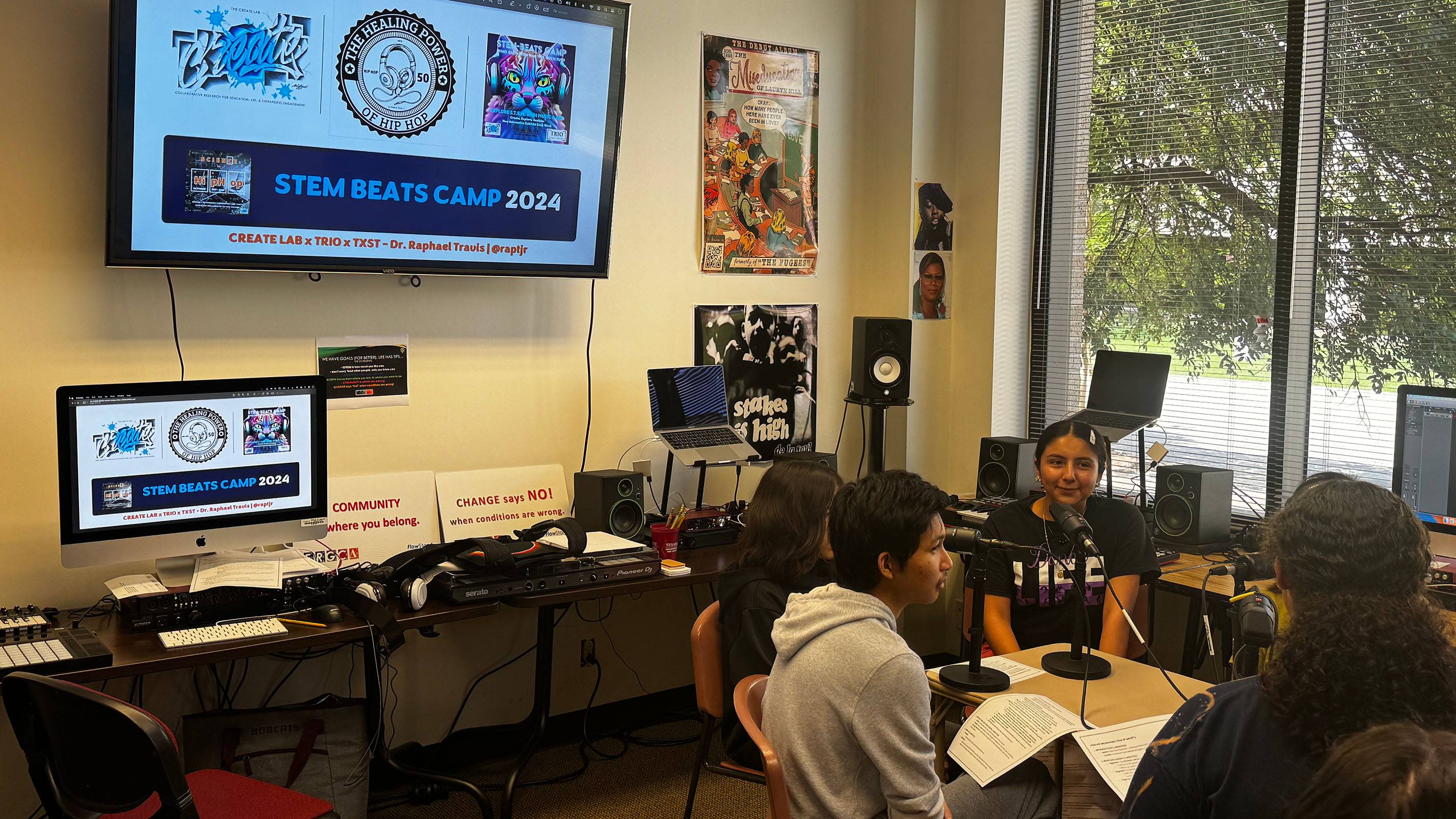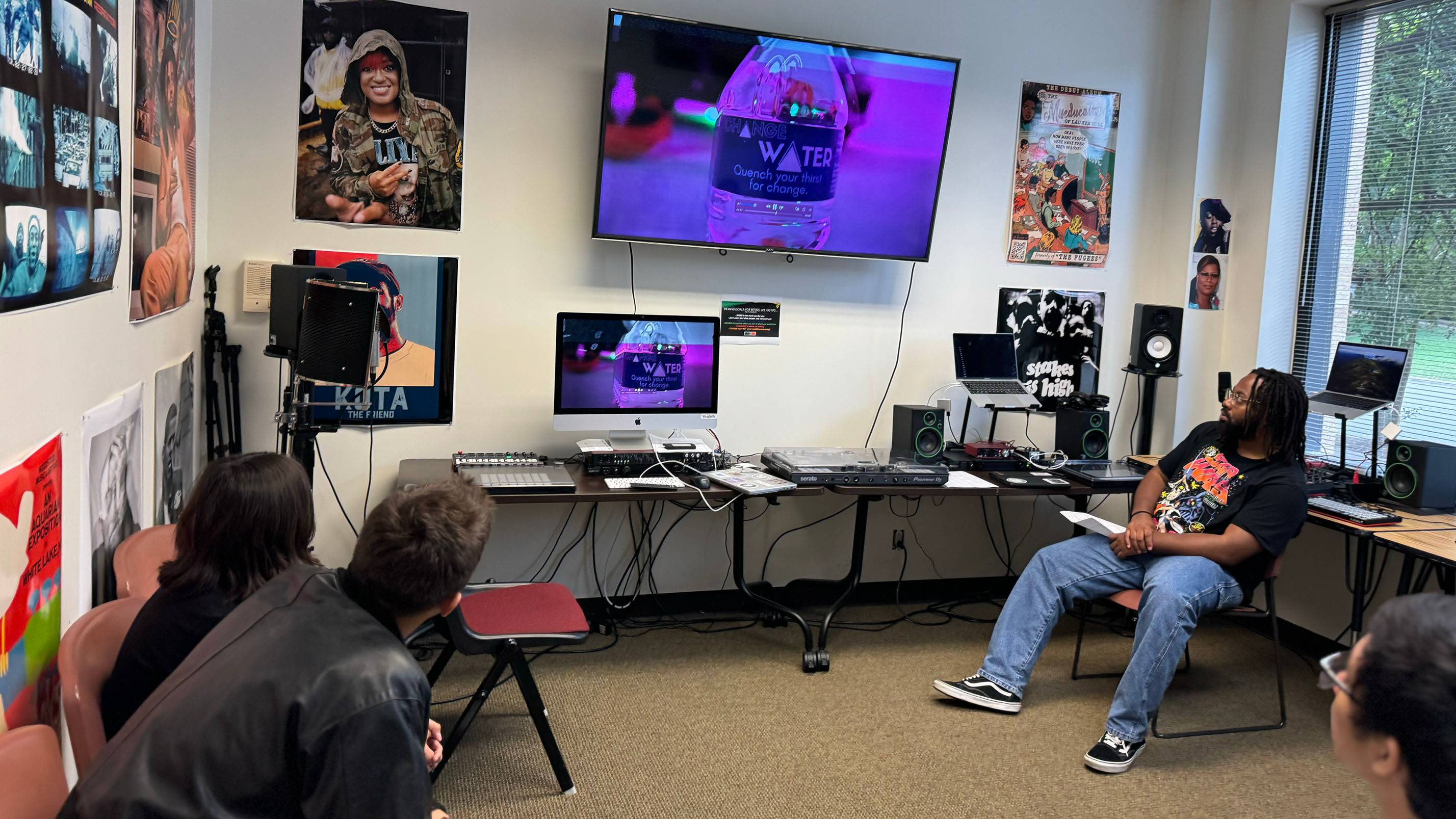The camp included mindfulness sessions before diving into Hip Hop listening sessions and an exploration of empowerment dimensions. The cohort then discussed how they relate to these themes of empowerment within Hip Hop culture. These reflective opportunities for self and social awareness are known in Hip Hop as “knowledge of self.”
These reflective music experiences tie back to Travis’ research and area of focus. The active form of music experiences, or music creation, started once the students began personalizing the concept to their own lives. It started with simply creating together — in a cypher.
“It’s not the pressure of asking a student to spit a rhyme on the spot,” Travis said. “It’s about making sounds together. Someone could start with a beatbox, then someone adds a sound with a pencil, then a sound from their mouth. By the end of this, we’ve got a group of students making music together. It’s a way of building a safe community.”
Next, each student was tasked with creating an artistic profile to include their stage name, favorite artist, and personal goal of the process so they could create their own narrative within how they want to see themselves. Then came creating the artistic project.
At the end of each day, Travis and Levy debriefed about each group. They initially thought group three would have trouble producing a quality product because its assignment was open-ended, and the first day was so unstructured, but that turned out to be incorrect.
“At the end of the week, they ended up being the most productive by creating a song and video,” Travis said. “If you give people space to be themselves, a lot of times you’ll be surprised with what they come up with.”
The last day of the camp provided students an opportunity to perform, process, and reflect on the entire experience to share what the camp meant to them. Students were able to build confidence and understand the significance of positive, supportive relationships, Travis said.
In addition to events hosted by the CREATE Lab, the studio welcomed social work freshmen this year with programming and information sessions. It’s also open to TXST students and the Hip Hop Congress student organization for recording, music production, photography, and video projects for free.
Email Travis for more information about reserving the Sound Lab.
